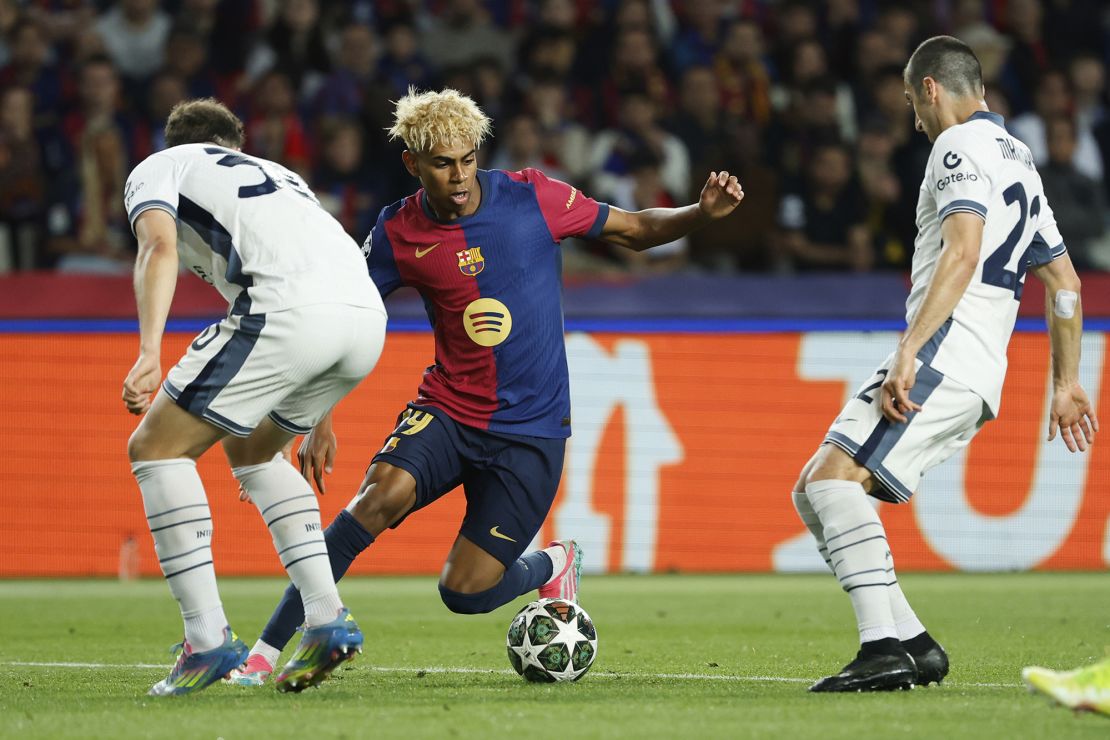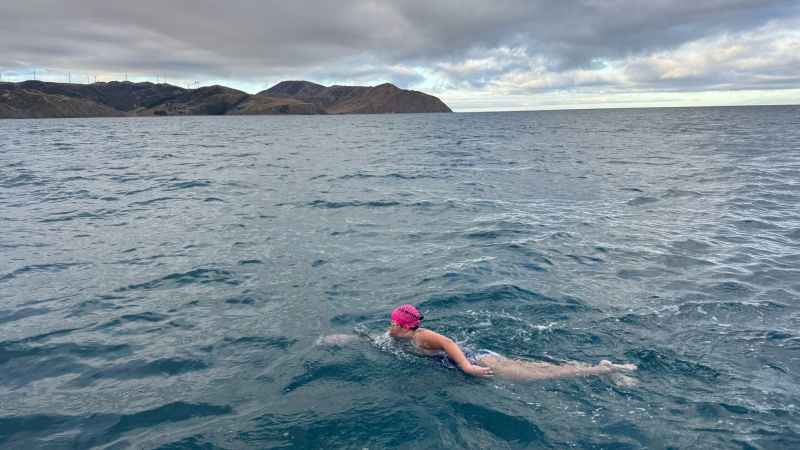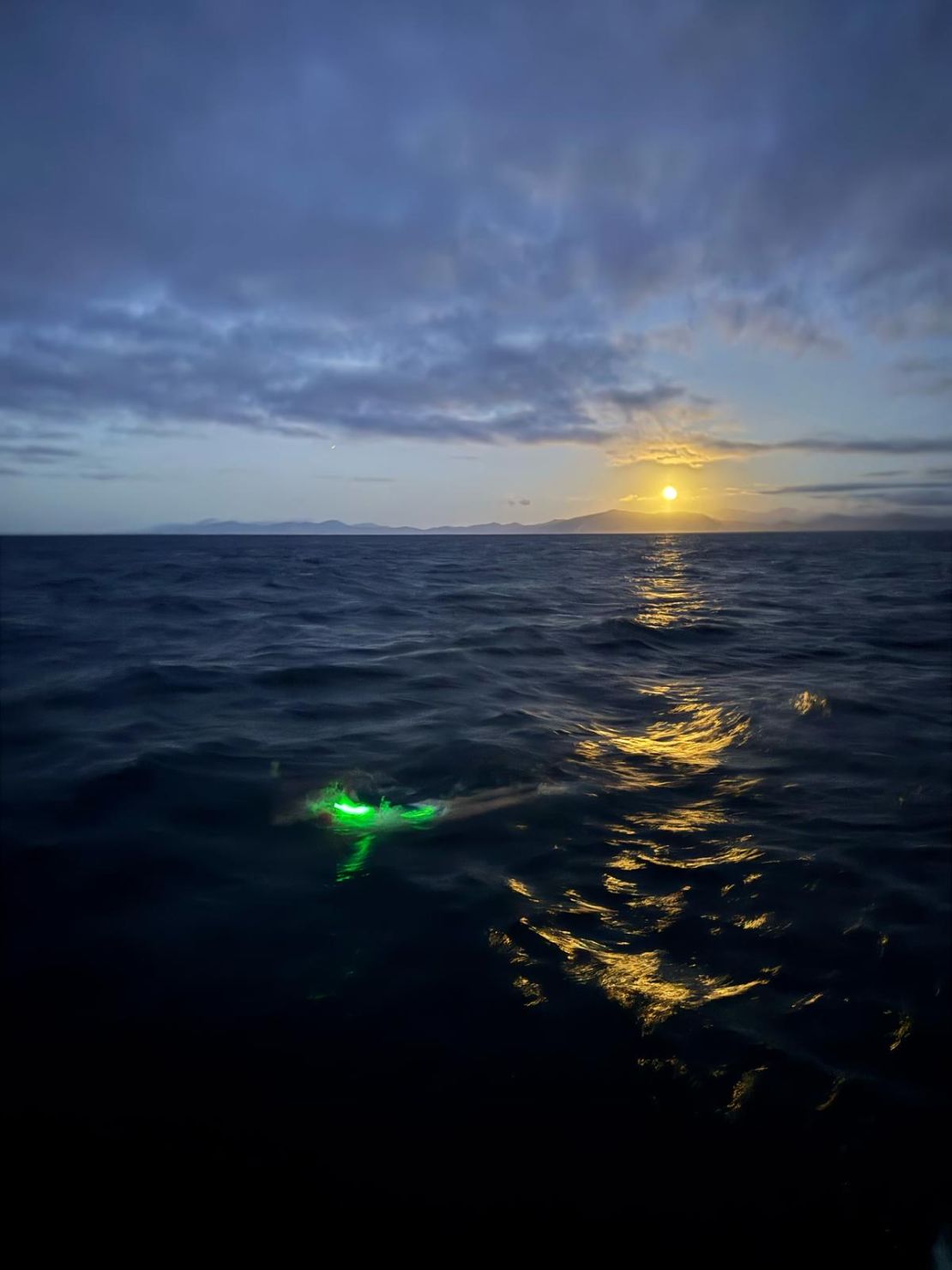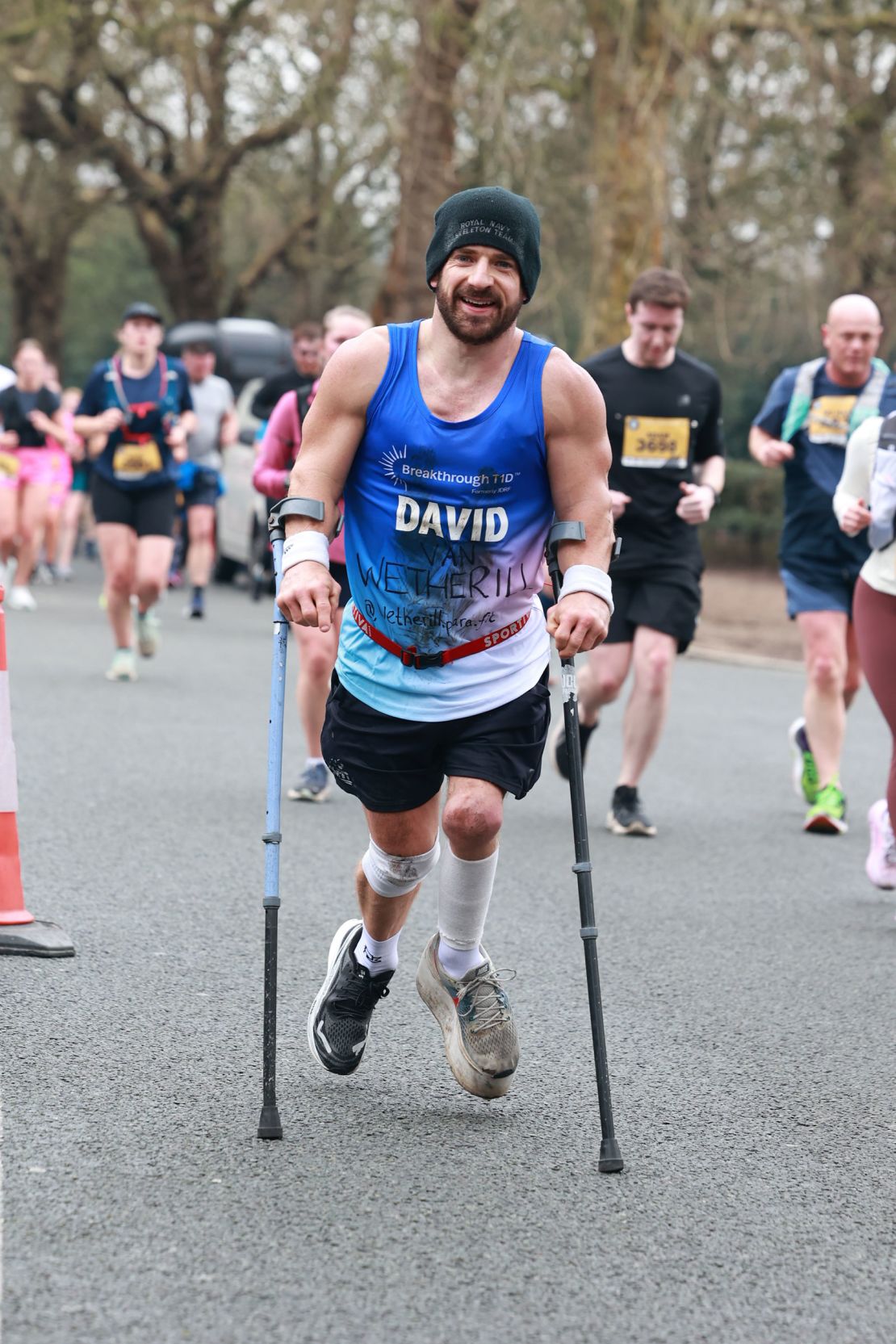CNN
—
On marathon day, the air thrums with emotion. Tune into any frequency and you will find it – elation, anxiety, exhaustion, pain, pride, awe, pathos.
More than 56,000 runners will line up on the start line of the London Marathon on Sunday, each one with a different reason for being there.
Many find that motivation in running for the charities which have helped them or their loved ones during the darkest times in their lives – the London Marathon has raised over £1.3 billion ($1.7 billion) since its inception. Others find it by using running to control their physical and mental health, set themselves goals or try a new challenge.
For Julie Wright, those two go hand-in-hand. Four years ago, her daughter Vicki died at the age 34 from breast cancer, leaving behind two young sons. And as Wright spent more and more time looking after them, she realized she had to get fitter.
“We take so much for granted when we’re younger … and as we get older, we think we can still do it … we think we can just pick up a skipping rope and skip and it’s not like that at all,” she tells CNN Sports.
At the same time, running helped Wright in “some really, really dark places” after the loss of her daughter. She settled on the idea of a marathon “to celebrate getting to 60 and still being alive,” as well as to raise money for Breast Cancer Now.
Now targeting her third marathon, Wright, her family, and her community have raised thousands of pounds for the charity.
The lingering presence of her daughter and mother, who passed away in January, accompanies Wright on her runs. On one hand, she wears her mother’s wedding ring, and on the other, she wears a gold band her daughter gave her just before she died.
“I’ve got mom on one finger and (Vicki) on the other … So when I’m having to dig really deep, I put my hands behind myself a little bit as if I’m flying … and it’s like I pretend I’m grabbing Mum’s hand on one side and my daughter’s on the other,” she says.
“And that gets me through the next five minutes. And once I’ve got through that next five minutes, I’m just getting on.”
Similarly, for 19-year-old twins Katie and Anna Rowland, the memory of their dad Jim sustains them through long training runs as they raise money for the Southern Area Hospice, which cared for him in his final days.
“If someone can lie in a hospital bed … and the pain that they can be in, I remember the pain daddy was in … if I can run for four, five hours, it’s nothing compared to what they can do,” Katie tells CNN Sports.
The pair signed up for the marathon on a whim after seeing a Facebook post from the hospice, in an attempt to “say thank you” and to give “a bit of money for what (they) did for us,” Anna adds.
There is power in running for a cause, says David Wetherill, a former Paralympic table tennis player aiming to set a world record for the fastest marathon while using crutches, a feat he estimates will involve completing around 42,000 dips – about one every meter.
“It’s a struggle for me to even walk 250 meters,” he says, explaining his hip is currently not in its socket due to multiple epiphyseal dysplasia – a genetic disorder which affects bone growth and leads to early onset arthritis.
“So it is mad to try and explain that I’m then going to go and run a marathon, but it’s so much easier for me to motivate myself to do the extraordinary than to do the mundane in my life, even though the pain levels are pretty much the same,” he tells CNN Sports.
Putting himself through such a grueling task, Wetherill says, is only possible by maintaining a stoic mindset – “if it’s endurable, endure it” – and because of his commitment to raise money for research seeking a cure for type 1 diabetes.
Two of his best friends and one of their young daughters all have the condition. Wetherill says his friends’ purpose has “become my purpose.”
“When it’s you at stake, that’s nowhere near as powerful as people you really really love,” he adds.
And in the process of training, Wetherill has become “addicted” to pushing his body, drawing from a “perverse kind of motivation, where I lean into the pain, the cure for pain is in the pain.”
Signing up to a marathon means committing to weeks of training beforehand, juggling work and family commitments at the same time. For the past few months, Luke Roche has balanced his full-time job in sales with raising two children under two and his marathon training, often waking up at four or five in the morning to go for a run before work.
“I could not have done it without (my fiancée) Beth,” he tells CNN Sports. “If I could get a second (medal) I would because she’s done just as much helping me train as I’ve done for myself.”
Running a marathon means so much to Roche that when he found out he had secured a place, it “broke” him, he remembers, his voice cracking. “It all fell into place. It was running for my granddad, running for my mate. It meant a lot,” he says.
Roche is running to raise money for The Donkey Sanctuary, a charity long supported by his late granddad who sponsored one of the donkeys there, visited it often, and made it the subject of the collection at his funeral. “I thought (it) was brilliant, so random and very unique and very him,” Roche says.
And by taking part in the marathon this year, Roche can run it with his friend who is running in memory of his 18-year-old sister who passed away last year.
“That’s why I am running the marathon!” Jennie Toland says as one of her daughters interrupts to ask a question. “She’s the reason why.”
Before having her daughter Rose, now aged three, Toland had suffered seven consecutive miscarriages. “I had no energy left, I was mentally just distraught,” she recalls. “It’s a lot of grief and a lot of seeing your life go in a completely different direction from where you thought it was going to go.”
Every doctor had told her and her husband to stop trying for a baby and, as a last resort, Toland was up late one night, scouring the internet for any glimmer of hope.
There, she stumbled across Tommy’s – a charity which funds research seeking to stop miscarriage, stillbirth and premature birth. She took part in a clinical trial funded by the charity and, though she still doesn’t know if she had the medication or the placebo, she has since had two children.
“We started talking about how to say thank you, because sending someone … a nice letter when they’ve given you your whole life … it just doesn’t seem enough to say thanks,” she says.
“I just wanted to do something. And then I watched a marathon last year and thought that’s a really good idea. And I’ve since been questioning those life choices.”
In the last seven years alone, the number of people applying to run the London Marathon has more than doubled, rising from 386,000 in 2018 to more than 840,000 this year.
Sunday’s race is expected to set the record for the most participants in a marathon, surpassing the 55,646 finishers at last year’s New York City Marathon.
The 26.2-mile distance continues to appeal for novice and experienced runners alike. Josh Elston-Carr, co-founder of FLYCARB and a former track runner who has recorded a sub-four-minute mile, turned to the marathon in search of a new challenge when his love for middle-distance running began to fade slightly.
When Elston-Carr first took up running as a junior 20 years ago, he joined an athletics club, the “traditional route in” at the time. Over the past two decades, he has seen more and more people take up an increasingly accessible sport thanks to “the rise of parkrun and run clubs,” he tells CNN Sports.
The running bug can be addictive. Liz Newcomer, a running influencer, never intended to compete in marathons. She began running “two or three miles every other day” as a way to improve her mental health and feared longer distances before her manager suggested running a half-marathon.
“Even after the half, the next weekend I ran 13 miles again, and then the next weekend maybe I ran 14 and … I realized that I really loved it. And it got to a point where people asked me, ‘Are you training for a marathon?’”
Five years on and Newcomer is preparing for her 10th marathon, transformed by distance running. The sport, she says, has helped her deal with “body image issues” and a relationship with food that “wasn’t super great at the time.”
“I definitely see my body more as like a car and when I need to eat, to fuel the car, I see it more as … something where I have to fuel for performance,” she says.

































